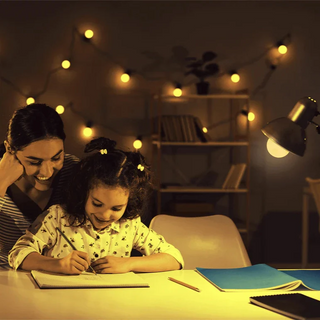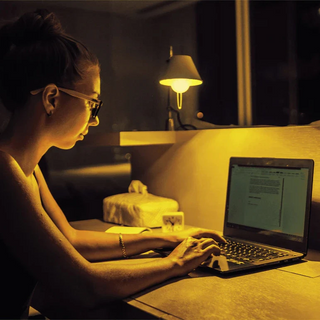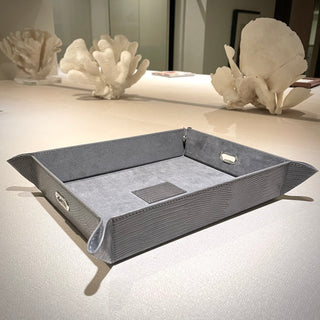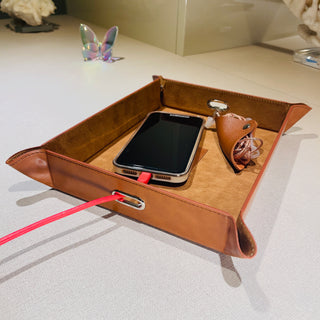The Brief
This article connects the dots between sleep disruption and modern tech exposure—blue light from screens, late-night stimulation, WiFi/EMF concerns, and what studies suggest—then offers practical changes that improve sleep quality without needing a perfect tech-free life.
Key Takeaways
• Blue light impacts melatonin and sleep timing; late-night screen habits worsen the effect.
• EMF/WiFi concerns are framed through sleep hygiene: lower nighttime exposure and reduce stimulation.
• Practical steps: screen curfews, night mode, phone out of bedroom, WiFi off at night.
• Encourages building a sleep sanctuary that feels calm and consistent.
Are you sleeping with your phone in your room or on your pillow? Is Your WiFi Powered On While You Try to Get To Sleep?
You're not alone...
- 86% of Americans admit to using their phone in bed before falling asleep
- A new survey from AmeriSleep found Americans scroll for 38 minutes before sleeping, on average.
-
Sixty-nine percent of teenagers reported to commonsensemedia.that they keep their mobile devices within reach at night.
-
A new study finds Each Additional Hour Of Screen Time IN BED can mean 24 minutes of less sleep.
-
Nearly a third (29%) of teens sleep with smartphones, cell phones or tablets
-
A robust new research project found that people got a better night's sleep when there was no EMF vs when a WiFi signal on:
-
Participants reported poorer sleep
-
27.3% of participants had insomnia during the exposure.
-
When the WiFi signal was on, participants showed changes in brain wave patterns in the theta, beta, and gamma frequencies.
-
Women in their 40's and 50's experienced more insomnia
-
That cellphone with its bright light, disruptive notification bings and dings and its invisible wireless energy or EMF can mess with our thinking, our minds our relationships and yes, our sleep.
Here are 6 reasons you may want to keep your smartphone out of your bedroom tonight and your WiFi off.
1.First, let's talk more about that WiFi signal study.
This study was robust, even thought there were just 12 people-it went on for 4 weeks and they not only found out how the people felt and slept, they took heart rate variability and brain wave measurements and found the differences with WiFi transmitters and without.
It was a pilot study which means it's sets the stage for the study to be done again so it's not just a one off. Because if people's sleep is as impacted by WiFi as the study shows, Houston, we've got a problem.
These were people were healthy and had no sleep issues. Yet, as you can see from this chart, sleep scores were better when No RF(radio frequency) EMF was on. They call it a PIRS scale. When the numbers go higher, it points to more insomnia. Baseline was before the cameras and monitors were brought in to bedrooms. RF on means EMF exposure, RF Off, means no exposure. The "washout" time was when there was a break from the test.
I always talk about doing a study the right way and this one did. Does radio frequency radiation impact sleep? was a double blind, meaning the "investigator" who put WiFi monitors and camera in peoples bedrooms and showed them how to fill out assessments, didn't know if the devices were really giving off EMF and neither did the participants. The study was also randomized and placebo controlled, meaning you couldn't tell the real from the fake WiFi.
I have to tell you, even without this study, hundreds of moms already knew the WiFi messed with sleep. Through out the years of telling so many people they needed to turn their WiFi's off at night, mothers were telling me their kids napped better vs sometimes not at all, when they turned the WiFi off.
It's such an easy thing to try. My main recommendation is to not touch that WiFi when it's on- or go near it for that matter. The signal is the strongest at the antenna, so please turn your WiFi off with a timer or remote control kill switch.
I LOVE our WiFi Kill Switch
2. For Every Extra Hour of Screen Time IN BED was inked to 24 minutes of less sleep in a study of 45,000. Plus they had 59% increase in Insomnia Risk
A study of 45,000 young adults showed that the more they used theire phones or tables in bed correleated with a higher likelifhood of those young adults reporting symptoms of insomnia. The researchers analyzed all the data from questionaires about weather or not someone brought a phone to bed and then how long they looked at the phone and what exactly they were looking at. They thought they would find out that social media scrolling could be connected with poorer sleep. But it wasn't. In fact those looking at social media, although still missing out on the best sleep, didn't have the worst results. That prize for the worst sleep loss went to those who were looking"at other things" on their phones.
Whatever they were doing on their phones, they still had more insomnia
And the impact is big. They found that for every extra hour a screen was used in bed, there was 24 minutes of less sleep. Not worth it, right?
Remember, ANY artificial blue light—from TV’s tablets, .e-readers, etc., stops the melatonin from being released in our bodies and can not only make it harder to get to sleep but can ruin the quality of your sleep too.
Boston's Brigham Research Center studied people who read from E-readers ,phones or devices before bed for 12 weeks. Participants who read from the iPad were less sleepy before bedtime, but sleepier and less alert the following morning after eight hours of sleep That's not good!
Still need to use your device within 2 hours of bed time? Grab this blue light blocking set for the right type of protection for your body needs at every hour of the day.
3. The phone near your pillow can cause cognitive impairment
Honestly, we don't want our cognition impaired. Our cognition refers to our thinking, knowing and learning. And cognitive impairment can mean forgetfulness or learning disabilities, concentration difficulties, A recent study found a correlation between those who kept their phones under or near their pillows and lower MoCA test scores.
MoCA is the Montreal Cognitive Assessment, which is a series of questions designed to shed insight into how well your brain handles cognitive tasks.
The group that put their phone under their pillows, scored"lower than normal" category, getting just a 24.35 MOCA score! Those just bringing the phone into the bedroom scored over 25.5--but a score of 26 is considered Normal. Does that man we shouldn't have phones in the bedroom at all??
That puts them in the Mild Cognitive Impairment zone. Not good, the symptoms according to the Mayo Clinic:
- Forgetting things more often.
- Missing appointments or social events.
- Losing their train of thought. Or not following the plot of a book or movie.
- Trouble following a conversation.
- Trouble finding the right word or with language.
- Finding it hard to make decisions, finish a task or follow instructions.
- Trouble finding their way around places they know well.
- Poor judgment.
- Changes that are noticed by family and friends.
People with MCI also may experience:
- Depression.
- Anxiety.
- A short temper and aggression.
- A lack of interest.
Keep that phone away from you pillow and Don't use before you go to sleep:
This study, "Association Between Smartphone Use and Breast Cancer Risk Among Taiwanese Women" is important. 1,000 women were interviewed about the quality of their sleep, how much they used their smartphone and whether they might actually addicted to it. Surprisingly, they found that the risk for developing breast cancer increased when women used their phones within 5 minutes of going to bed.
Want to boost your brain power? This coloring book has been proven to increase mindfulness and decrease anxiety

4. One Survey Found That Those who sleep with their phones on or next to their beds are 3 times more likely to report feeling very unhappy or extremely dissatisfied with their lives, compared to those who don’t.
This statistic comes from that SureCell survey we talked about earlier said this could be more about what's termed "excessive phone use". It would stand to reason that if we need to have our phones in the bedroom, we probably like to use them a lot. There are many studies linking excessive phone use to isolation and depression.
But say that's not you- you're not depressed or unhappy, you're just used to that phone being close by. Nothing wrong with that.
"I'm not addicted! I just need my phone to wake me up in the morning!" FALSE!! Try this EMF-Free and Blue Light-Free Analog Alarm Clock.
5. Magnetic EMF from the charging cord + phone screen and Wireless EMF from your cellphone can Block Melatonin plus cause stress and dis-ease to your beautiful body.
There are now 1,000's of peer reviewed studies that show a connection between EMF and illnesses from infertility, to cancer, to immunity and headaches. You can find the details in our EMF Guide
Studies have shown that EMF can among other things, decrease the levels of melatonin our bodies make and releae. A newer study found that rats exposed to cellphones caused anxiety and a reduction in melatonin levels. Both of those don't mix well with trying to get a good night's sleep.
I got the chance to personally communicate with Kevser Delen the lead researcher on the study and she said that it wasn't just the effects on melatonin that she noticed, she also saw anxiety when the cellphones were on.
"In our study the distance between the rats and the antennae was about 20 cm. We suggest our exposure could be analogous with human exposure. We observed significant biological changes as written in the manuscript. I also observed that rats had anxietic behaviours when RFR (radiofrequency radiation) on."
6. The light from the screen does the opposite of make you sleepy.
The luminous blue light that comes from our screens stops the release of the sleep hormone, melatonin. Our bodies have been designed to produce this hormone in our pineal gland and then magically release it according to natural day and night light cycles.
But looking at bright light at night is like looking at the bright sun or daylight at night. It's not natural and it tricks our bodies into thinking it's time to wake up and get going. In fact we can often get a cortisol release, just by looking at that light. Cortisol as you may know is that "high focus" fight or flight steroid hormone that comes from our adrenal glands. Let's save it for the daytime when we can really make the most of it.
Remember, ANY artificial blue light—from TV’s tablets, .e-readers, etc., stops the melatonin from being released in our bodies and can not only make it harder to get to sleep but can ruin the quality of your sleep too.
Boston's Brigham Research Center studied people who read from E-readers ,phones or devices before bed for 12 weeks. Participants who read from the iPad were less sleepy before bedtime, but sleepier and less alert the following morning after eight hours of sleep That's not good!
Still need to use your device within 2 hours of bed time? Grab this blue light blocking set for the right type of protection for your body needs at every hour of the day.
7. Sleeping with the phone in your bedroom can be distracting and interfere with your relationship with your partner.
Did you know that the mere presence of your cellphone in view can cause you to be distracted? It's true. The study is eye opening and at the same time, pretty obvious. It's like when that phone isn't out of sight and tucked away, it's as though it calling out your name-- wanting your attention and distracting you from sleep. Or even more importantly, that fabulous human next to you in bed. Put the phone away and it will be easier to give them your full attention
You also don't want something called Technoference in the bedroom.
BYU asked 143 married or cohabiting women, about how tech was effecting their relationships. A stunning majority reported that phones, computers and other technology devices were significantly disruptive in their relationships. The technoference was associated with higher conflict and lower relationships satisfaction.
I completely get this one. I remember the first time my husband brought the phone to bed with us. He was staring at it and touching it and smiling -and I thought, oh my gosh, it's like he's talking to someone- and they're here with us- in our bed. But I can't see them, or hear the conversation. He wasn't actually communicating with anyone of course, he was just reading and scrolling as one does. But it made me feel uncomfortable. I looked at him and glanced down at that phone and said, "Honey, that is not happening." He looked at me and said. "Yeah. Okay." And that was that.
No phone in our bed ever since.
If you haven't experienced the peace and joy of a device free bedroom, give it a go and see if you don't sleep better and enjoy time more and find your personal sleep sanctuary more rejuvenating.
Make sure your phone is comfy too while you're all snuggled up in bed. Put this charging station outside your room as a reminder for the whole fam to keep their phones out of their bedrooms!

Common Sense media research
Sure Call cellphone-attachment survey
Boston's Brigham Research Center 12 week study
BYU study













